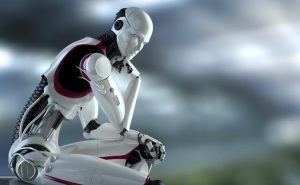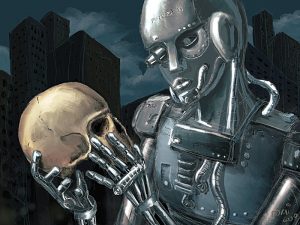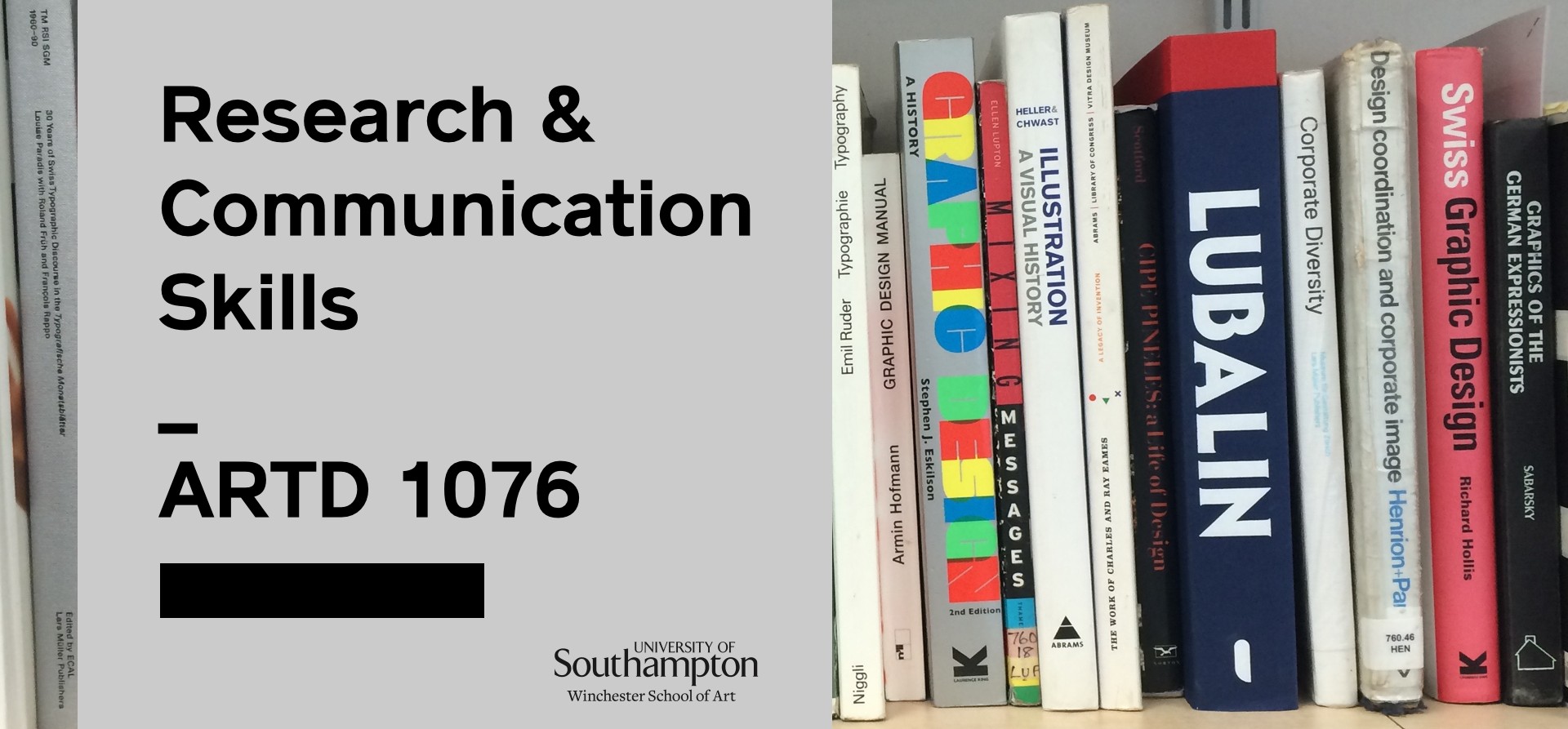A) Behavioural modelling is an important part of NPC development for games. Should emotive modelling be part of that development?
Player behavioural modelling is of increasing importance in modern video games (Recent advances in machine learning and game playing). The main reason for this is the fact that the artificial intelligence’s (AI) purpose is to entertain the player, rather than defeat him (Opponent modelling and commercial games). I believe that the more realistic a video game is, the better the game experience is.
Player modelling has many roles in a video game (Opponent modelling and commercial games). In the companion role, the game AI must behave accordingly to the expectations of the human player. For example, if the human player wants to hide, the NPC must act accordingly. Otherwise, the human player won’t be pleased. In the coach role, the game AI monitors closely the behaviour of the human player, and dependent on the goal of the game redirects the player’s focus, or encourages a certain course of action. In the opponent role, the game AI must be able to match the playing skills of the human player, and respond adequately to the player’s playing style. I believe that these goals can be easily achieved without emotive modelling, but I think that the emotive modelling would only make a game more interesting and entertaining. For instance, when a player is in danger of dying because of low energy, there may be a compassionate NPC who would donate him some food so that the main character doesn’t die. I, personally, would be really thankful.
The Walking Dead, 2010 – Emotional Video Games
B) A lot of people are scared by the prospective of AI. What do you think would be the ramifications of us achieving true “strong” AI?

The true ‘strong’ AI’s goal is to develop artificial intelligence to the point where the machine’s intellectual capability is functionally equal to a human’s (A Holistic Approach to AI). I believe that the humanity has come a long way. From the human discovery of fire, we can now fly to the moon and back. Despite the fact that there are now decades since people try to achieve ‘strong’ AI, I do think that the humankind will be capable to finally achieve it (maybe in a thousand years, but it will). I took more than 2 million years after the discovery of fire to invent a light bulb, after all.
If ‘strong’ AI will be achieved, I think that robots will eventually bring both advantages and disadvantages in our lives. No doubt the life is much easier than how it was 10 years ago due technology, but many jobs have already been replaced by computers or machines, leaving people without a sustainable income; and this is only a common example today. Achieving ‘strong’ AI, I think that from a certain point, robots may be somehow able to further develop themselves. At that point, the human race will officially be inferior technology. My only wish is that robots will be smart enough to help the world instead of destroying it, as people do, but I don’t know to what extent this would be possible, since the fact that in the end, they learn from us.
References:
- Fürnkranz J.- Recent advances in machine learning and game playing – ÖGAI-Journal, 26 (2) (2007).
- Van den Herik H.J., Donkers H.H.L.M., Spronck P.H.M. – Opponent modelling and commercial games – G. Kendall, S. Lucas (Eds.), Proceedings of the IEEE 2005 Symposium on Computational Intelligence and Games (CIG’05), IEEE Press, Piscataway, New York, USA (2005).
External Links:
http://www.sciencedirect.com/science/article/pii/S1875952111000486#b0035
http://ethicapublishing.com/ethical/3CH12.pdf
https://www.ocf.berkeley.edu/~arihuang/academic/research/strongai3.html
